Ivermectin & Albendazole Tablets – Broad-Spectrum Deworming and Antiparasitic Treatment
What is Ivermectin Albendazole?
Ivermectin + Albendazole is a potent antiparasitic combination therapy used to treat a wide range of intestinal and tissue-dwelling parasitic infections.
- Ivermectin: A broad-spectrum antiparasitic that works by paralyzing and killing parasites.
- Albendazole: A benzimidazole anthelmintic that inhibits the metabolism of parasitic worms.
Composition
- Ivermectin: 6 mg / 12 mg (varies by formulation)
- Albendazole: 400 mg
- Form: Oral tablet
Mechanism of Action
Ivermectin:
Binds to glutamate-gated chloride ion channels in the nerve and muscle cells of parasites, leading to increased cell membrane permeability, paralysis, and death of the parasite.
Albendazole:
Inhibits microtubule formation in parasite cells by binding to β-tubulin, impairing glucose uptake and leading to energy depletion and death of the parasite.
Indications / Uses
✅ Common Indications:
- Strongyloidiasis
- Ascariasis (roundworm)
- Trichuriasis (whipworm)
- Hookworm infections
- Lymphatic Filariasis (Wuchereria bancrofti)
- Cutaneous Larva Migrans
- Neurocysticercosis (involving Albendazole only – Ivermectin may not be used)
- Onchocerciasis (river blindness) – Ivermectin only
🌍 Mass Drug Administration (MDA):
In many countries, this combination is used in public health campaigns for deworming programs to eliminate soil-transmitted helminths and filarial infections.
Dosage and Administration
💊 Dosage should be prescribed by a physician based on patient weight, age, and type of infection.
Typical Adult Dosage:
- Ivermectin: 6–12 mg as a single dose
- Albendazole: 400 mg as a single dose or once daily for 3–5 days
Dosing Frequency:
- For deworming: Often given annually or biannually
- For treatment: May require 1–5 days of therapy depending on the condition
Administration:
- Take with food to enhance Albendazole absorption.
- Preferably in the morning.
Benefits
- Convenient single-tablet formulation for better patient compliance
- Useful in mass deworming and public health programs
- Oral administration – no injection required
- Safe and effective in adults and children (age and weight-dependent)
Side Effects
Common Side Effects:
- Nausea
- Abdominal pain
- Headache
- Dizziness
- Diarrhea
- Skin rash or itching
Less Common / Serious Reactions:
- Fever or chills
- Elevated liver enzymes
- Vision disturbances (rare)
- Neurological effects in neurocysticercosis (use with corticosteroids)
- Allergic reactions
⚠️ Medical monitoring is advised in patients with high parasite loads or CNS involvement.

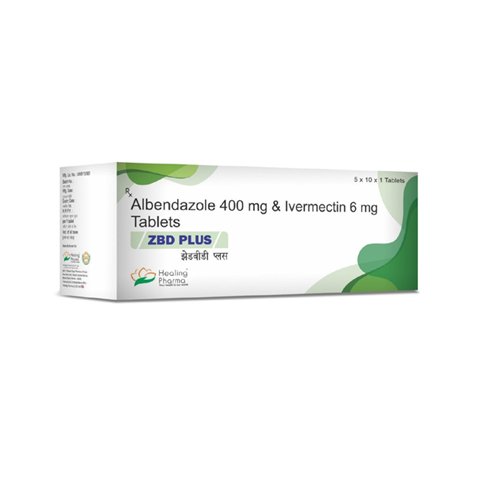

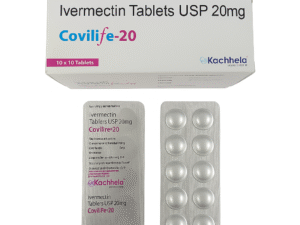

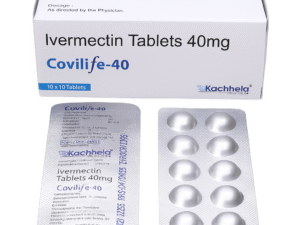
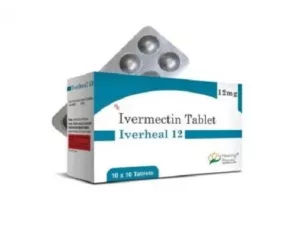
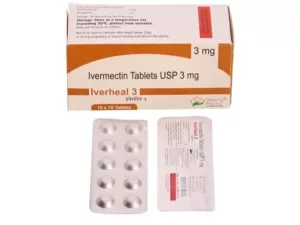
Reviews
There are no reviews yet.